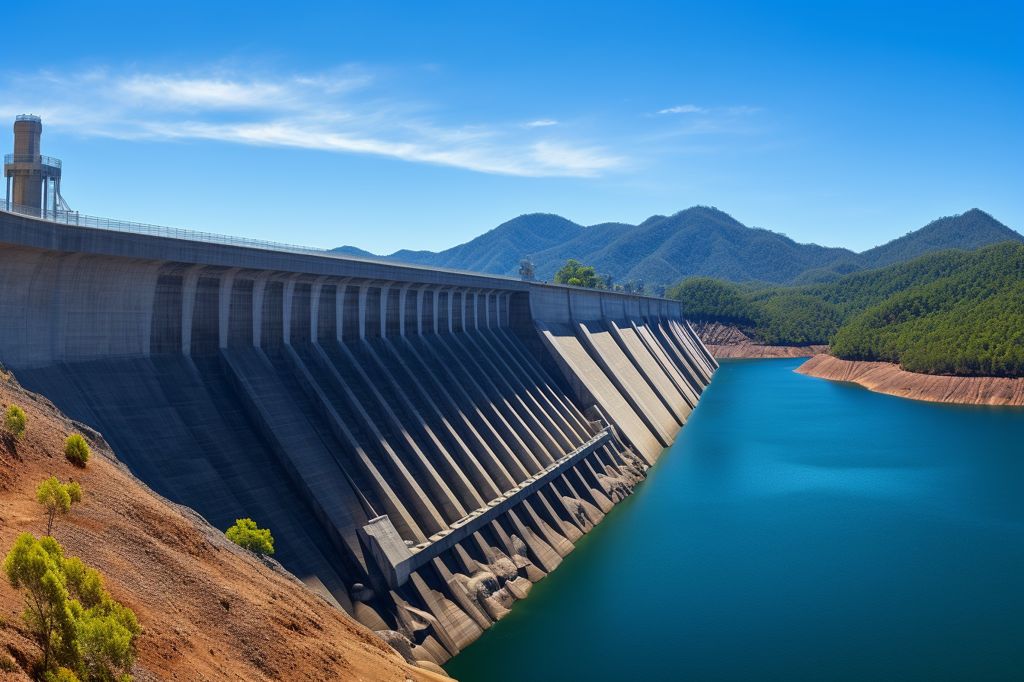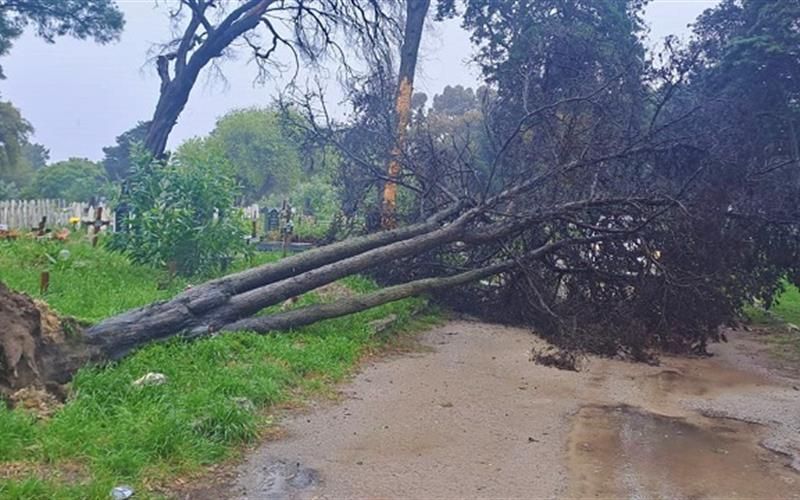The Lesotho-South Africa Bi-National Commission marks a pivotal moment in the strong and intertwined history between the two countries. The commission aims to address shared challenges in economics, environment, and society, with a focus on renewable energy and the Lesotho Highlands Water Project. This collaboration serves as a benchmark for unity and cooperation in the region, highlighting the power of strong relationships in overcoming obstacles and creating a better future for generations to come.
A Pivotal Moment in Southern Africa
The inaugural Lesotho-South Africa Bi-National Commission recently took place, co-chaired by South African President Cyril Ramaphosa and Lesotho Prime Minister Matekane. The commission demonstrates the unwavering commitment of both countries to strengthen their relations for mutual benefit.
The Kingdom of Lesotho and South Africa share a deeply connected history, with intertwined bonds in language, culture, and heritage. Lesotho served as a steadfast ally during South Africa’s struggle against apartheid, providing refuge and support to the liberation movements.
Over time, the economic relationship between these two countries has flourished, bringing benefits to both nations. South African investments in Lesotho contribute to job creation, while Lesotho’s invaluable water resources continue to benefit South Africa.
Addressing Challenges and Enhancing Cooperation
The commission was established with the goal of addressing challenges faced by businesses and ensuring that investments are protected. A crucial aspect of this collaboration is the Lesotho Highlands Water Project, which is now entering Phase II. This essential development for water security brings advantages to both countries. It improves water security in Gauteng province and other parts of South Africa, while also generating jobs in Lesotho and constructing new roads that provide access to previously unreachable areas.
As the negative impacts of climate change worsen, water and energy security have become critical regional concerns. The commission aims to tackle these issues by collaborating on four proposed renewable energy projects. Significant investments in renewable energy are essential to prepare for the future and secure resources for upcoming generations.
The commission also seeks to address the challenges posed by illegal mining, an activity with significant social and economic costs for both countries. This issue took center stage when several illegal miners tragically lost their lives at the Harmony Gold Mine in Welkom. The governments of Lesotho and South Africa have been working closely with the mining company to develop strategies for the safe retrieval of the miners’ bodies.
Expanding the Scope of Collaboration
In addition to economic and environmental cooperation, the commission focuses on completing Lesotho’s comprehensive National Reforms Process. The government of Lesotho has finalized an Action Plan to monitor the progress of the reforms, and South Africa has committed to continued support for the SADC Panel of Elders and Mediation Reference Group initiative. This support will assist the Basotho people in finishing the process.
Throughout the commission meetings, leaders from both countries expressed appreciation for their respective Ministers’ and Senior Officials’ diligent work and preparation. Their dedication to productive discussions and promoting mutual growth is a testament to the powerful bond between these neighboring nations.
The Lesotho-South Africa Bi-National Commission serves as a benchmark for cooperation and collaboration in the region. By addressing shared challenges in the realms of economics, environment, and society, these two countries exemplify the power of unity in overcoming obstacles. The commission’s success serves as an inspiration for other nations to foster similar relationships, creating a stronger and more collaborative southern Africa for generations to come.
1. What is the Lesotho-South Africa Bi-National Commission?
The Lesotho-South Africa Bi-National Commission is a collaboration between the Kingdom of Lesotho and South Africa that aims to address shared challenges in economics, environment, and society.
2. What is the focus of the collaboration?
The collaboration has a focus on renewable energy and the Lesotho Highlands Water Project.
3. What is the Lesotho Highlands Water Project?
The Lesotho Highlands Water Project is an infrastructure project that aims to improve water security in Gauteng province and other parts of South Africa, while also generating jobs in Lesotho and constructing new roads that provide access to previously unreachable areas.
4. Why is renewable energy important to the collaboration?
Renewable energy is important to the collaboration because significant investments in renewable energy are essential to prepare for the future and secure resources for upcoming generations.
5. What is the challenge posed by illegal mining?
Illegal mining is an activity with significant social and economic costs for both countries.
6. What is the scope of collaboration?
In addition to economic and environmental cooperation, the commission focuses on completing Lesotho’s comprehensive National Reforms Process.
7. What is the Lesotho National Reforms Process?
The Lesotho National Reforms Process is a comprehensive process that the government of Lesotho has finalized an Action Plan to monitor the progress of the reforms.
8. What is the significance of the Lesotho-South Africa Bi-National Commission?
The Lesotho-South Africa Bi-National Commission serves as a benchmark for cooperation and collaboration in the region, highlighting the power of strong relationships in overcoming obstacles and creating a better future for generations to come.








